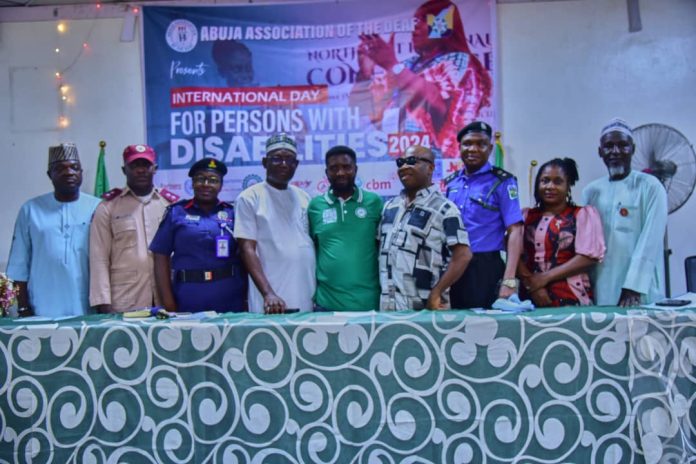Abuja, Nigeria — December 13, 2024
The 2024 International Day of Persons with Disabilities (IDPWD) Symposium, held in the Federal Capital Territory, Abuja, was an inspiring convergence of stakeholders, advocates, and thought leaders dedicated to advancing the rights and inclusion of persons with disabilities. This year’s event, themed “Transformative Solutions for Inclusive Development: The Future is Accessible with Inclusive Sign Language,” emphasized the critical role of sign language in building a truly inclusive society.
The symposium, spearheaded by the Abuja Association of the Deaf under the leadership of its Chairman, Mr. Ayoade Beyioku-Alase, drew an impressive roster of attendees, including government officials, civil society organizations, development partners, and members of the disability community. It was a day filled with powerful speeches, thought-provoking discussions, and a renewed call to action for disability inclusion.
A Clarion Call for Inclusion
In his stirring welcome address, Mr. Beyioku-Alase described the symposium as more than just a gathering. “This is a clarion call for action, equity, and dignity,” he remarked, emphasizing the necessity of transformative solutions to ensure the inclusion of persons with disabilities in every aspect of life.
Reflecting on the progress made so far, he celebrated a historic milestone achieved in the Federal Capital Territory just last week: the Abuja Inclusive Marathon. This groundbreaking event united persons with and without disabilities, raising awareness of the barriers faced by the disability community and the urgent need for accessibility reforms.
“This symposium builds on that momentum,” he said. “It is an opportunity to amplify the voices of persons with disabilities, particularly the Deaf community, and push for the recognition of sign language as a cornerstone of accessibility and equity.”
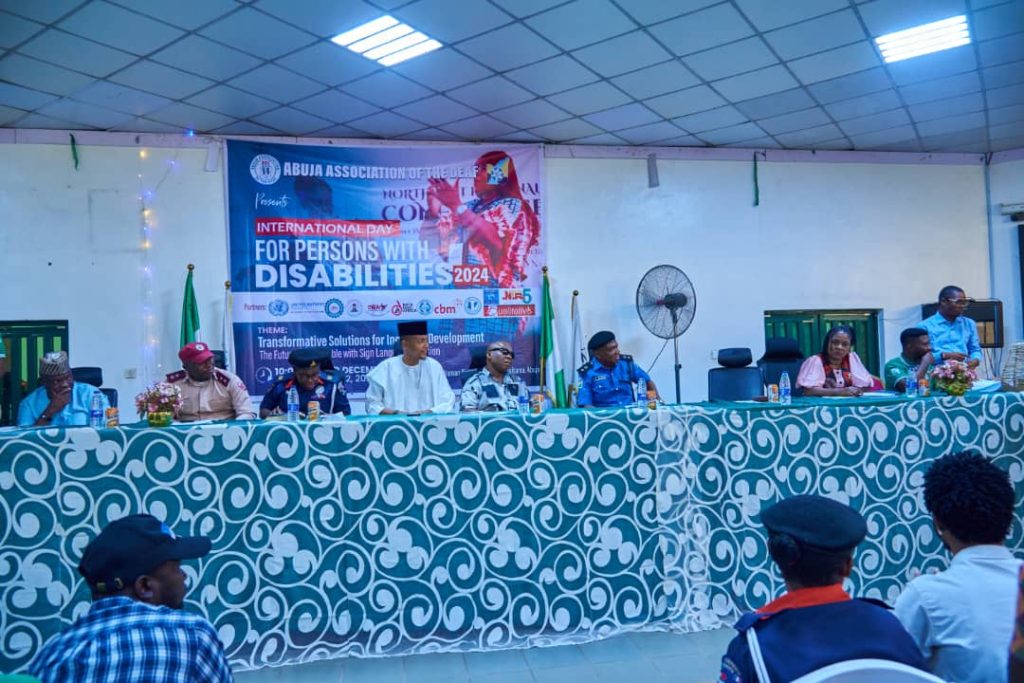
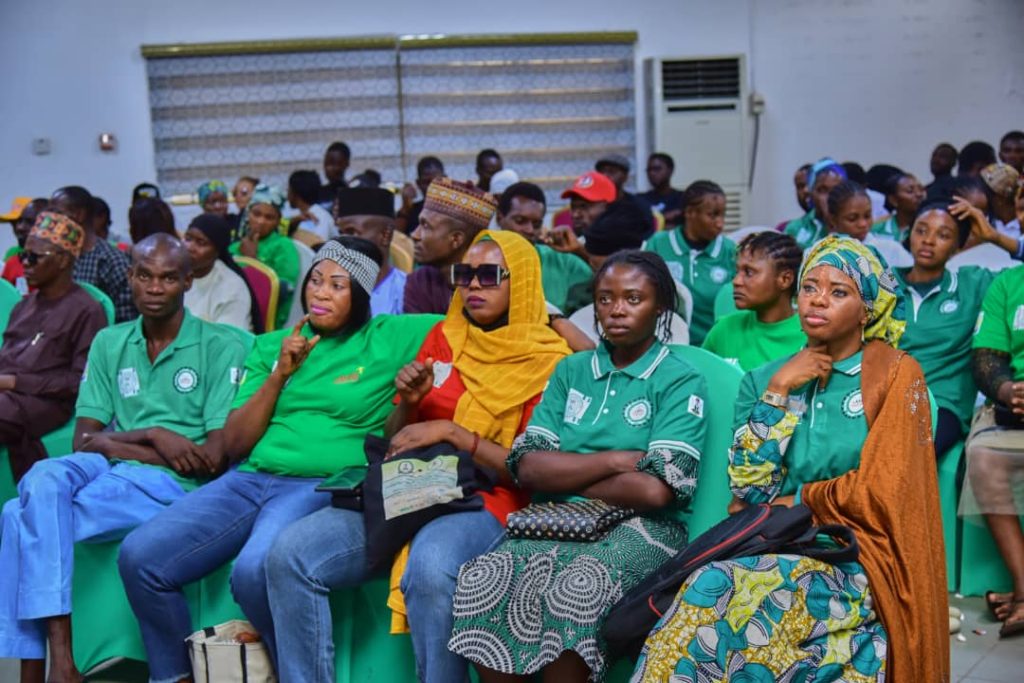
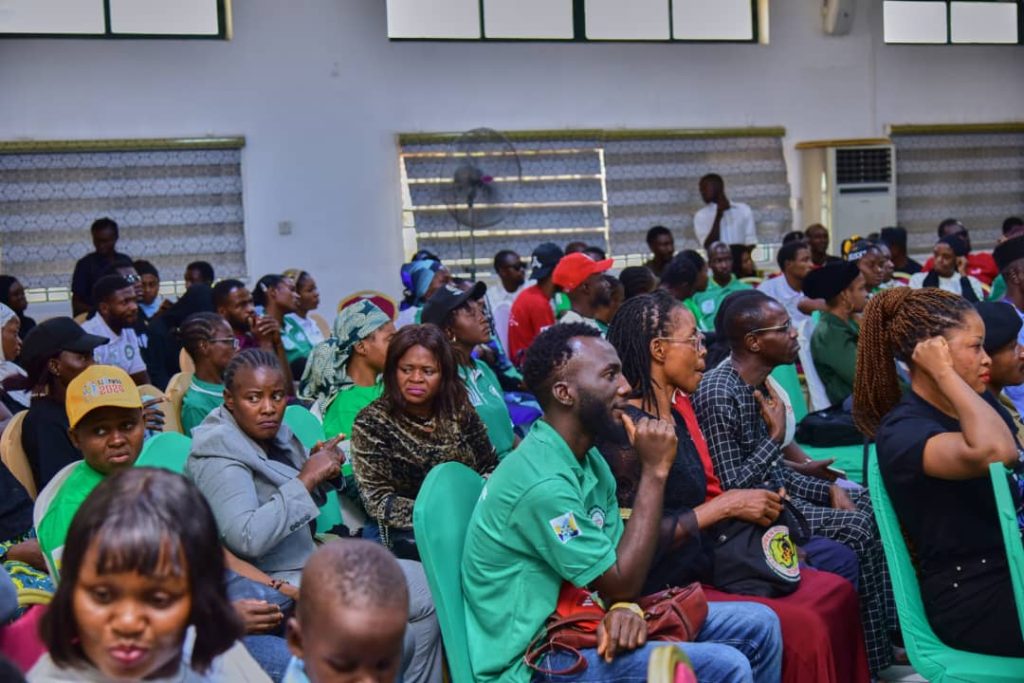
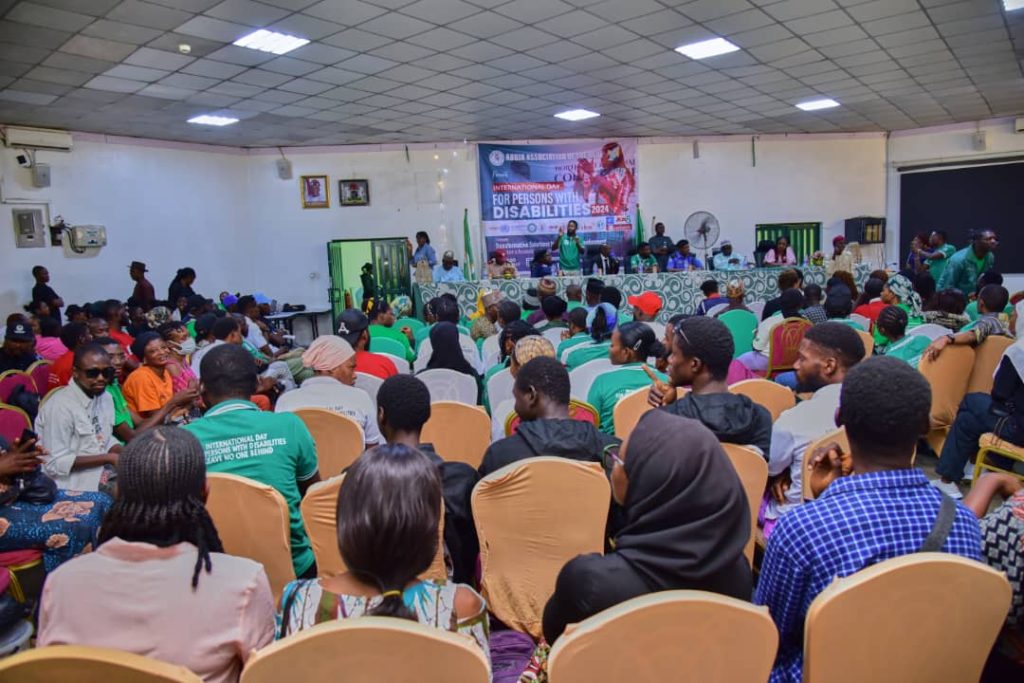
The Realities of Disability in Nigeria
The event highlighted the persistent challenges faced by the Deaf community and other persons with disabilities in Nigeria, despite progress made through the Nigeria Disability Act (2018). Mr. Beyioku-Alase enumerated these challenges, which include:
- Accessibility Barriers: Public spaces and transportation remain largely inaccessible.
- Language Gaps: The absence of inclusive sign language services continues to isolate the Deaf community.
- Education Deficits: Many children with disabilities, including Deaf children, still lack access to quality education.
- Healthcare Inequalities: A lack of interpreters in healthcare settings undermines equitable access to medical services.
- Employment Discrimination: Workplace exclusion and stigma hinder economic empowerment.
“These challenges underscore the need for transformative solutions,” Mr. Beyioku-Alase asserted. “We must ensure no one, especially the Deaf community, is left behind.”
Keynote Speeches and Discussions
The symposium featured a lineup of dynamic keynote addresses and presentations by prominent speakers, each offering unique insights into the future of disability inclusion:
- Executive Secretary, National Human Rights Commission (NHRC): Delivered a keynote address on “Transformative Solutions for Inclusive Development: The Future is Accessible with Sign Language.”
- Mr. Lawrence Idemudia JP, Director, Social and Rehabilitation, National Commission for Persons with Disabilities (NCPWD): Spoke passionately on “Nothing About Us Without Us: The Place of Sign Language in Nigeria’s National Language Policy and the Nigeria Disability Acts.”
- Mrs. Patience Ogolo, Executive Director of Advocacy for Women with Disabilities Initiative (AWWDI): Addressed the intersection of health equity and inclusive development through sign language in her session on “Health Equity with Sign Language.”
- Dr. Ayoola Aworowo, Founder/Lead Partner, Data Lead Africa: Focused on inclusive technology and entrepreneurship for the Deaf community, urging for innovations that empower persons with disabilities to thrive in the digital economy.
These powerful speeches were complemented by an engaging panel session, which fostered a robust exchange of ideas among participants, and a colorful cultural dance performance that celebrated the rich diversity of the disability community.
A Commendable Development
One of the most celebrated milestones discussed during the event was the National Assembly’s recent approval of the use of sign language within its chambers—a historic step toward inclusion. While lauding this achievement, participants called for similar measures to be adopted across all government ministries, departments, and agencies.
“The adoption of sign language by the National Assembly is a beacon of hope,” Mr. Beyioku-Alase noted. “But we must extend this progress to every sector to ensure the full participation of the Deaf community.”
The Call to Action
The symposium concluded with a clear and urgent call to action. Stakeholders outlined a roadmap for advancing disability inclusion in the Federal Capital Territory and beyond, focusing on:
- Full Implementation of the Nigeria Disability Act (2018): Ensuring all government bodies comply with its provisions.
- Recognition of Sign Language: Advocating for sign language to be officially recognized as a legal language in Nigeria.
- Establishment of the FCT Disability Commission: A dedicated body to address the unique challenges of persons with disabilities in the FCT.
- Inclusive Education and Healthcare: Prioritizing access to quality education and medical services for persons with disabilities.
- Employment Opportunities: Promoting inclusive workplaces and combating stigma through public awareness campaigns.
“Disability inclusion is not a favor; it is a fundamental human right,” Mr. Beyioku-Alase declared. “Inclusion begins with communication—bridging the gap through sign language. Together, we can create a society where everyone, regardless of ability, feels valued and included.”
Attendance and Impact
The event drew representatives from key organizations, including the National Human Rights Commission (NHRC), Joint National Association of Persons with Disabilities (JONAPWD), National Commission for Persons with Disabilities (NCPWD), Advocacy for Women with Disabilities Initiative (AWWDI), and Data Lead Africa. Security agencies such as the Nigeria Security and Civil Defence Corps (NSCDC) and the Federal Road Safety Corps (FRSC) were also present, alongside United Nations representatives and other stakeholders.
Their presence underscored the collective commitment to advancing disability rights and inclusion, with many pledging to champion the recommendations made during the symposium.
Conclusion
The 2024 IDPWD Symposium was a powerful reminder of the work that lies ahead in building an inclusive and accessible society. As participants left the venue, the message was clear: inclusion is not just a goal—it is a necessity. Through collective action and sustained advocacy, the future envisioned in the symposium’s theme—“The Future is Accessible with Inclusive Sign Language”— can become a reality.

